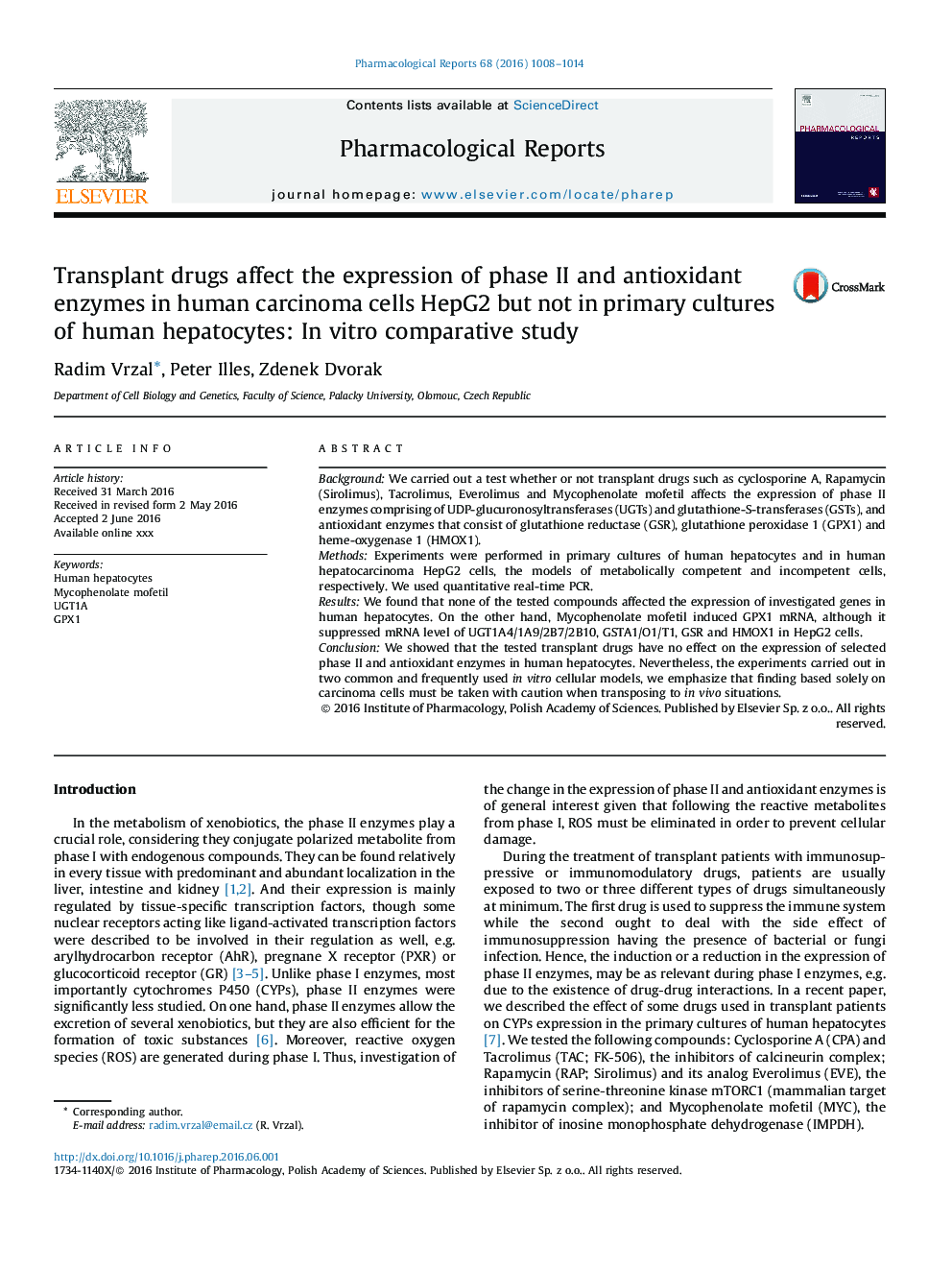| Article ID | Journal | Published Year | Pages | File Type |
|---|---|---|---|---|
| 2010692 | Pharmacological Reports | 2016 | 7 Pages |
•Mycophenolate mofetil induces GPX1 but reduces HMOX1 and GSR mRNAs in HepG2 cells.•Mycophenolate mofetil downregulates UGT1A4/1A9/2B7/2B10 mRNA in HepG2 cells.•Transplant drugs have no effect on UGTs, GSTs mRNAs in human hepatocytes.
BackgroundWe carried out a test whether or not transplant drugs such as cyclosporine A, Rapamycin (Sirolimus), Tacrolimus, Everolimus and Mycophenolate mofetil affects the expression of phase II enzymes comprising of UDP-glucuronosyltransferases (UGTs) and glutathione-S-transferases (GSTs), and antioxidant enzymes that consist of glutathione reductase (GSR), glutathione peroxidase 1 (GPX1) and heme-oxygenase 1 (HMOX1).MethodsExperiments were performed in primary cultures of human hepatocytes and in human hepatocarcinoma HepG2 cells, the models of metabolically competent and incompetent cells, respectively. We used quantitative real-time PCR.ResultsWe found that none of the tested compounds affected the expression of investigated genes in human hepatocytes. On the other hand, Mycophenolate mofetil induced GPX1 mRNA, although it suppressed mRNA level of UGT1A4/1A9/2B7/2B10, GSTA1/O1/T1, GSR and HMOX1 in HepG2 cells.ConclusionWe showed that the tested transplant drugs have no effect on the expression of selected phase II and antioxidant enzymes in human hepatocytes. Nevertheless, the experiments carried out in two common and frequently used in vitro cellular models, we emphasize that finding based solely on carcinoma cells must be taken with caution when transposing to in vivo situations.
Graphical abstractFigure optionsDownload full-size imageDownload as PowerPoint slide
